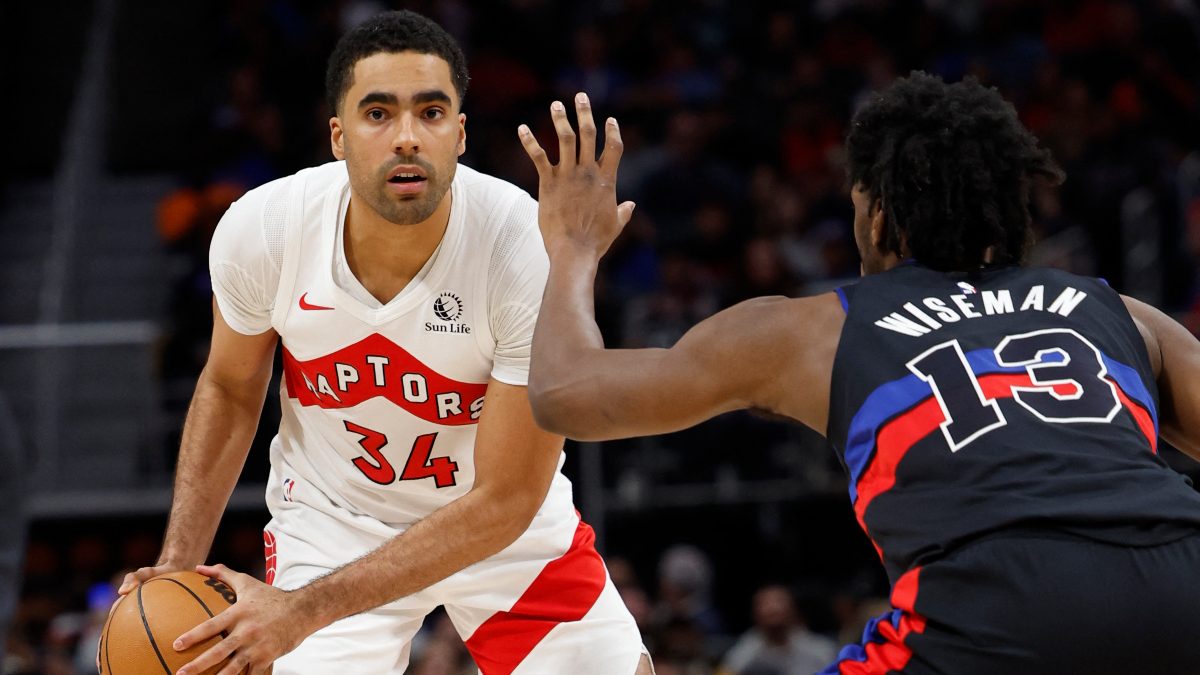The NBA banned Toronto Raptors forward Jontay Porter for life earlier this year after a probe found he placed bets on league matches.
read more
One Jontay Porter was one too many for the NBA when it comes to sports betting.
The NBA has led the way for American professional sports leagues’ foray into the once-forbidden territory while trying to balance betting and the integrity of the game. The NBA has established guidelines and an educational program to educate those from the league office to players, coaches and support staff on individual teams so that they understand the potential pitfalls for breaking any rules.
Violations of those established guidelines can result in lifetime banishment.
“A lot of what is happening is a lack of awareness, a lack of sophistication, what is OK and what isn’t OK,” said Baird Fogel, a California attorney who works with the sports-betting industry. “To some people, it would seem kind of a given, but for a lot of folks … it is new territory.”
It became costly territory for Porter when he was playing for the Toronto Raptors.
He received a lifetime ban in April for betting on games — including on the Raptors to lose — and disclosing confidential information to gamblers.
To prevent more such instances from occurring, the NBA works with the National Basketball Players Association to make addressing sports betting a priority.
Rookies attend a session on sports-betting awareness as part of their required general training that also includes on- and off-court topics such as how to handle financial matters and interactions with coaches, teammates and media.
Dalton Knecht, who was drafted 17th overall by the Los Angeles Lakers this year, said the league does a good job of not overcomplicating the issue.
“Personally, I don’t gamble,” Knecht said after a preseason game against the Golden State Warriors in Las Vegas. “I’m not going to go gamble. They talk about it. They’ll say, ‘You can’t bet stuff’ and all that. They keep it simple.”
But it’s not just entry-level players. All who wear NBA uniforms must take part in an annual anti-betting session conducted either by the league or the player’s respective team. Failure to attend, barring what is deemed a valid excuse, is a $100,000 fine.
League and team personnel also undergo similar training.
“Maintaining the integrity of our game is paramount and has been since long before sports betting was legalized across the United States,” the league said in a statement to The Associated Press. “We have a multi-faceted compliance and monitoring program …”.
But things aren’t always that simple.
Fogel said part of what complicates matters is that leagues and teams have professional relationships with sports-betting companies that can blur the lines between what is and isn’t acceptable.
After Commissioner Adam Silver penned an op-ed in The New York Times nearly 10 years ago supporting legalizing and regulating sports betting, the NBA in 2018 became the first major American professional sports league to sign a contract with a gambling company when it agreed to a deal with MGM. The league also signed FanDuel and DraftKings as official sponsors in 2021.
Teams have their own agreements. The reigning NBA champion Boston Celtics, for example, agreed to a deal with FanDuel in May to sponsor a docuseries during what became a successful run to their record 18th championship.
Leagues and teams are eager to take the enormous amount of money that comes from such sponsorships while at the same time making sure that the perception that games are being fairly played isn’t altered.
“So it’s getting harder, I think, for a player to discern what is wrong or right,” Fogel said.
Changing enforcement rules in different sports also has created potential confusion.
The NCAA last year decided to take into account several factors, including the amount of money on bets, before weighing what penalties to levy. The largest governing body for collegiate sports also eased reinstatement rules.
The NBA in conjunction with the players union have maintained the same disciplinary rules that have been in place since shortly after the U.S. Supreme Court cleared the way six years ago for all states to legalize sports betting.

)